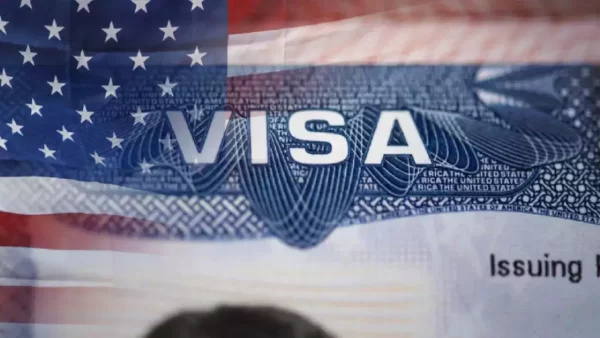Fears that a new, fast- spreading coronavirus variant could potentially be more dangerous than indeed the Delta variant urged several countries to put restrictions on trip from affected regions, and caused stock requests across the globe to crash.
By evening, the World Health Organisation (WHO) had designated this variant,B.1.1.529, as a “ variant of concern (VOC)”, and given it the name Omicron.
The variant, which was blazoned by scientists in South Africa on Thursday, was detected in two further countries, Israel and Belgium. Botswana and Hong Kong are the other countries where the variant has been plant.
The WHO said about 100 genome sequences of the variant have been reported so far. Numerous of the infected people were completely vaccinated, with at least one person in Israel having also entered a third, supporter, cure of vaccine.
India, which on Friday blazoned resumption of routine transnational air services from December 15, said it would step up webbing of pamphlets, especially those from affected countries.
In an critical note to state governments on Thursday, Health Secretary Rajesh Bhushan had said the emergence of the new variant had “ serious public health counteraccusations”, and asked them to increase alert.
The scientific analysis till now suggests that the new variant has been spreading at a rate briskly than any other variant, including Delta. The fact that several of the infected people were completely vaccinated, including one with a supporter cure, is an suggestion that this variant also has considerable capability to shirk the vulnerable response.
This means that this variant is a cause of solicitude on at least two of the three criteria that are used to assess how dangerous any new variant is. As of now, there’s no information on its capability to beget severe complaint, the third pivotal criteria.
“ This variant has a number of mutations, some of which are concerning. Primary substantiation suggests an increased threat of reinfection with this variant, as compared to other VOCs,” the WHO said in a statement.
“ The number of cases of this variant appears to be adding in nearly all businesses in South Africa … This variant has been detected at faster rates than former surges in infection, suggesting that this variant may have a growth advantage,” it said.
“ Grounded on the substantiation presented reflective of a mischievous change in Covid19 epidemiology … the WHO has designatedB.1.1.529 as a VOC, named Omicron,” it said.
The Delta variant, first discovered in India late last time, has been the deadliest variant of SARS-CoV2 on all these three counts till now. It’s the dominant variant now in utmost regions, and is the reason behind the deadly alternate surge in India, and the ongoing swell in Europe and a many other regions.
Scientists The Indian Express spoke to, said it was too early to say whether the new variant was more murderous than Delta, but called for stricter surveillance.
“ Not everything is known about this variant yet. Data is still coming by. As of now, we know that it has over 30 mutations, of which 10 are in the shaft protein. Whether this variant turns out to be a briskly spreading one, or one that has lesser capability to shirk vulnerable response is still to be seen. But we need to be veritably alert,” virologist Shahid Jameel said.
Vineeta Bal, an immunologist associated with the Indian Institute of Science Education and Research (IISER), Pune, said the emergence of the variant wasn’t an unanticipated development, but authorities demanded to respond with increased surveillance to insure early discovery and effective insulation.
“ Contagions change all the time. That’s commodity to be anticipated. But we should be suitable to insure that it doesn’t gain a base in numerous people,” Dr Bal said.
She also emphasised on the need for making acceptable inventories of vaccines available to South Africa, where the new variant is the most wide. “ This should be done on high precedence so that unborn events like this bone can be elided with better vaccine content,” she said.
Virologist Gagandeep Kang said the coming two to three weeks were a pivotal period for India, during which the genomic surveillance – the analysis of gene sequences – of the contagion also demanded to be stepped up significantly.

 America granted work permits for Indian spouses of h-1 b visa holders
America granted work permits for Indian spouses of h-1 b visa holders  Elon Musk’s Neural ink Begins Human Trials for Brain Chip Implantation in 2023
Elon Musk’s Neural ink Begins Human Trials for Brain Chip Implantation in 2023  Trump widens lead over DeSantis in 2024 GOP presidential nomination showdown: poll
Trump widens lead over DeSantis in 2024 GOP presidential nomination showdown: poll  6 killed after work zone car crash on Baltimore Beltway, police say
6 killed after work zone car crash on Baltimore Beltway, police say  Russia’s Medvedev goes on tirade against International Criminal Court, threatens The Hague with missile strike
Russia’s Medvedev goes on tirade against International Criminal Court, threatens The Hague with missile strike  US urges Xi to press Putin over ‘war crimes’ in Ukraine
US urges Xi to press Putin over ‘war crimes’ in Ukraine